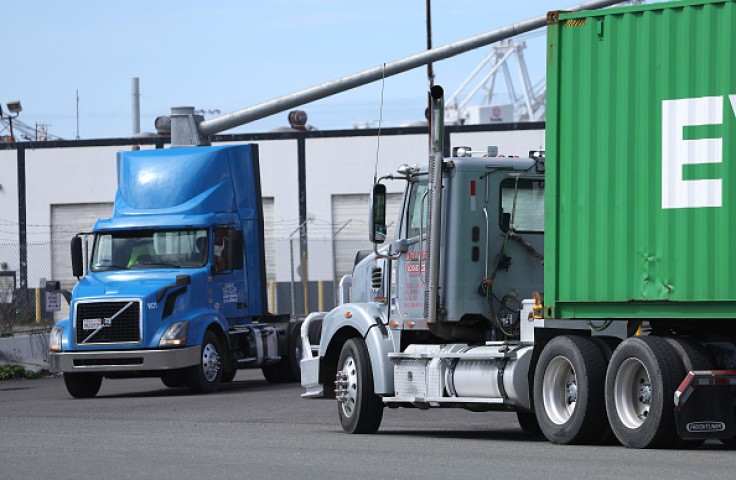A number of car manufacturers already have plans set out to become all-electric companies after a few years, and the notion seems to be catching up as laws are matching the vision of a future without emissions. California has a goal of banning combustion engines in certain vehicles by 2035.

California Going Green
The state has already approved the Advanced Clean Fleets, which is a rule that requires medium to heavy vehicles to no longer have emissions. It's part of the California Air Resources Board's (CARB) aim to reduce emissions produced by vehicles.
Locomotives are responsible for most of the pollutants in California, with heavy-duty trucks behind 35% of the transportation-generated nitrogen oxide and 25% of on-road greenhouse emissions, as mentioned in Interesting Engineering.
The statistics have drawn concern especially since despite the heavy-duty trucks only accounting for 6% of total vehicles on state roads, it still contributes a significant amount of emissions overall, based on data provided by CARB.
California Governor Gavin Newsom states that the actions requiring heavy-duty trucks to be zero-emission vehicles, as well as tackling train pollution in the state, will bring it "one step closer to achieving healthier neighborhoods and cleaner air for Californians."
Although it won't be an easy task to eliminate combustion engine trucks, it will also save $26.6 billion in health-related costs from reduced asthma attacks, emergency room visits, and respiratory illness, according to CARB.
The trucks that will be affected will be those that weigh more than 26,000 pounds. Truck manufacturers will have to find a way to transition to creating electric-engine trucks if they decide to keep selling vehicles in California.
Various trucks also differ in deadlines when it comes to the change. For instance, last-mile delivery and yard trucks will have to transition by 2035, work trucks and day cab tractors by 2039, and sleeper cab tractors and specialty vehicles by 2042.
Should everything go according to plan, an estimated 17 million metric tons of greenhouse emissions will be reduced. Reports say that it is the equivalent of removing four million passenger cars from the road.
Car Companies Turning to Electric Engines
Various car manufacturers already have plans ahead to become all-electric. This is a big step since instead of simply adding in options between electric, combustion, or hybrid, they are eliminating combustion engines entirely.
For example, Bentley already announced its plans to be all-electric by 2030. By 2026, it will no longer sell vehicles that solely run on combustion engines and instead manufacture plug-in hybrid or electric vehicles, as mentioned in Gear Patrol.
Other brands that share the timeline for converting are Cadillac, Lexus, Mercedes-Benz, BMW's Mini, Rolls-Royce, and Volvo. Other companies have the same goal but at a later date, with General Motors planning to do so by 2035, and Audi by 2033.
The transition of the mentioned manufacturers may urge other car brands to follow suit, by going all-electric as well or offering options for its consumers to purchase electric vehicles while still offering fuel-powered cars.









